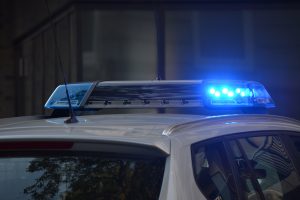
I met with another person recently who felt that they “passed” their field sobriety tests. Stated shortly, you can’t really tell if you “passed” them.
There are two basic purposes for field sobriety tests:
- To develop probable cause to arrest you.
- To use as evidence of DUII even if you turn out to be under .08 BAC.
It’s probably sometimes true that the officer is screening you to determine if he is going to proceed or not. In the majority of cases, however, the officer will admit that he was going to arrest you before he even asked you to do these tests. That is, he’s asking you because he thinks you are drunk.
That as it turns out, is the biggest fault with the field sobriety tests. They rely almost entirely upon the objective findings of that same officer. So, take the HGN, the moving pen test. What he’s doing is making your eyes go to their extreme right and left position. He’s looking for 3 “clues” in each eye.
One of them is whether your eyes have nystagmus, ie twitching, at “maximum deviation.” There is no scientific standard for the level of twitching. The officer just checks off “nystagmus present” or absent based on his opinion. Remember, that’s the same guy that already has concluded that you are drunk. When you blow a .05, that opinion of twitching is going to be important evidence against you at your DUII trial.
So why take the field sobriety tests at all? The theory is that you can convince the officer that you are not drunk and he’ll turn you loose. There is also a mistaken belief that something happens to your license if you don’t. That’s not the case. Something happens to your license if you refuse to give the breathalyzer test (or a urine test under certain circumstances), not the field sobriety tests.
The penalty for not taking the field sobriety tests is that the DA can argue at your trial that you didn’t take them because you knew you were drunk. In response, you can argue the other good reasons why you didn’t. In my experience, failing them is much worse than refusing them.